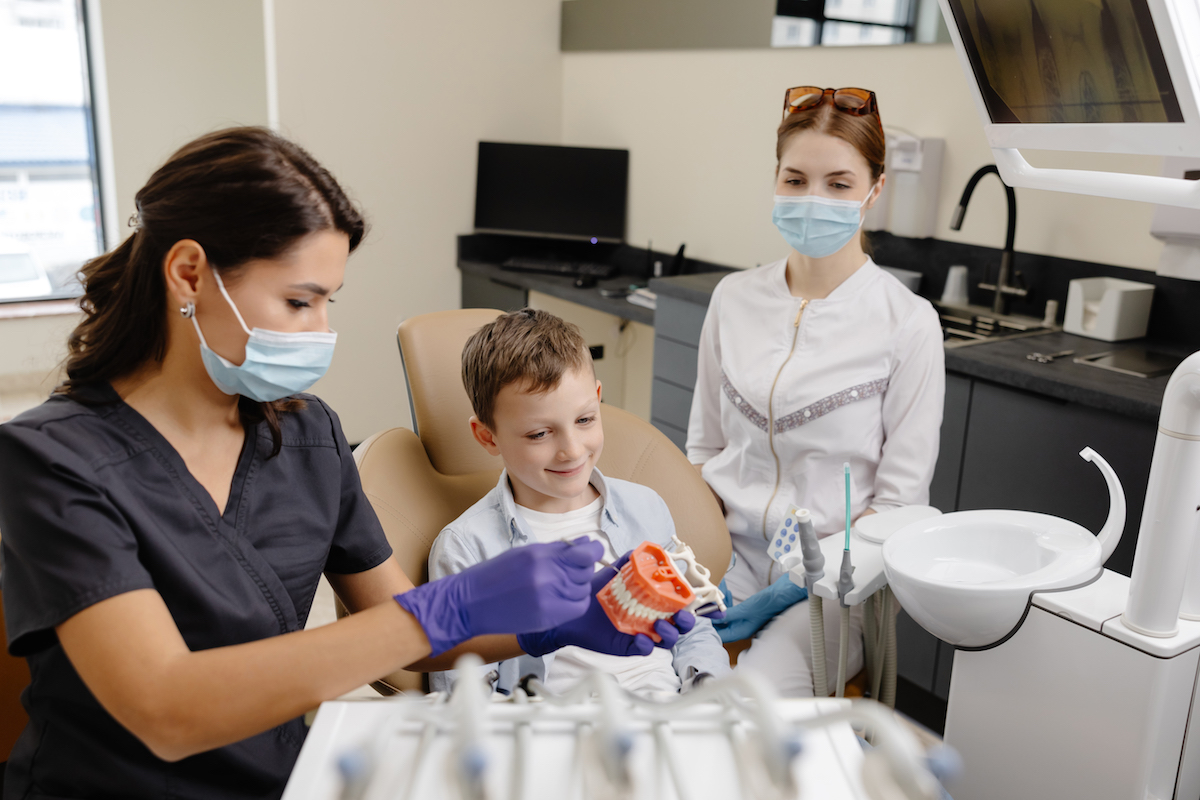Pedodontics (Pediatric Dentistry)
Pedodontics, or pediatric dentistry, is a specialized branch of dentistry focused on the oral and dental health of individuals from infancy through adolescence. Treatments in this field not only address existing dental problems but also aim to foster preventive habits that promote lifelong dental health. Primary (baby) teeth play a crucial role in nutrition, speech development, and jaw growth. Therefore, regular dental check-ups from an early age are vital for preventing cavities and avoiding potential orthodontic or structural issues later on. Pediatric dental care is tailored according to the child’s age, dental development, and psychological readiness.
What Procedures Are Performed?
Preventive Treatments: Fluoride applications and fissure sealants to prevent cavities
Fillings and Root Canal Therapy: Treatment of cavities in primary teeth
Tooth Extractions: Removal of primary teeth that fail to fall out or are infected
Space Maintainers: Appliances used to preserve space for permanent teeth when primary teeth are lost prematurely
Trauma Treatment: Repair of broken teeth due to falls or injuries
When Is a Pediatric Dental Examination Needed?
In cases of tooth decay or dental pain
If a primary tooth does not fall out on time
When misalignment is noticed during the eruption of permanent teeth
If habits like teeth grinding or clenching are observed
To develop good oral hygiene habits
How Does the Treatment Process Work?
During the initial examination, the child’s oral structure, dental development, and hygiene habits are assessed. The dentist creates a treatment plan based on the child’s age and level of cooperation. Special communication techniques and sedation support may be used to help the child feel safe during procedures. Regular follow-ups are scheduled to monitor oral health after treatment.
Frequently Asked Questions
When should the first dental check-up be?
The first dental visit is generally recommended around the age of 1, shortly after the first baby tooth erupts.
Should baby teeth be treated if they decay?
Yes. If baby teeth with decay are not treated, infections can spread and may negatively affect the development of permanent teeth.
What can be done for children who are afraid of the dentist?
Fear can be reduced by creating a child-friendly environment, using gradual familiarization, and applying effective communication techniques.
When should tooth brushing start?
Tooth brushing should begin as soon as the first tooth appears, using an appropriate toothbrush and water.
Is fluoride application harmful?
When applied professionally and in appropriate doses, fluoride treatment is safe and helps prevent tooth decay.

